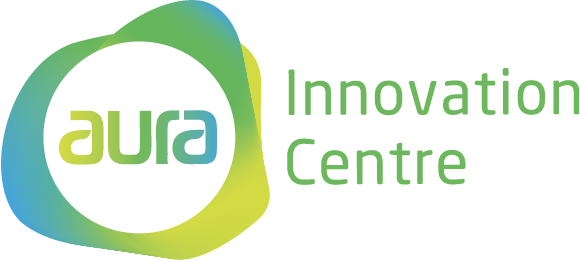Novel material improves air quality for Humber business
Part funded by
Delivered by
Supported by
Gateway Chassis Solutions Ltd
One of the UK’s leading manufacturers of chassis for Caravan Holiday Homes, Leisure Lodges and Residential Park Homes, Gateway Chassis Solutions, currently operate out of three production facilities, one in Wellingborough and two in Hull. Innovation-focused and actively looking to reduce their carbon footprint across the business, Gateway Chassis Solutions were looking for ways to improve working conditions for their staff, reduce their energy consumption and limit any harmful environmental emissions.
THE CHALLENGE
PROJECT PARTNERS:


Removing harmful emissions from the workplace
Following the expansion of one of their production facilities in the Humber, Gateway Chassis Solutions were becoming increasingly concerned about the air quality in their workplace and the level of harmful emissions being released into the atmosphere as a result of their rapidly expanding welding and spraying production line impacting on both their staff, and also the wider external environment.
In particular they were looking at how they could reduce the level of Volatile Organic Compounds (VOCs) and other atmospheric particulate matter (PM) with a diameter of less than 2.5 micrometres (PM2.5). Particles in this category are so small that they are about 3% the diameter of a human hair and can only be seen with a microscope.
THE SOLUTION
Our Innovation Manager, Dave Dawson, drew expert knowledge from the University of Hull and called in experts from the Department of Chemical Engineering.
LEAD RESEARCHER:
Dr Xuebin Ke, Lecturer
Chemical Engineering
PROJECT FUNDER:
![]()
University research offers material solution
Our Innovation Manager, Dave Dawson, worked with Gateway Chassis Solutions to successfully apply for, and gain, ERDF-funded support from the Aura Innovation Centre (AIC), matching them with a leading expert in the chemistry of materials from the University of Hull’s Department of Chemical Engineering, Dr Xuebin Ke.
Dr Ke’s work in this area had already resulted in a novel nano-material that might offer the solution the company were looking for and so the project looked to explore the effectiveness of this material in filtering out these harmful particles from the workplace.
The two-stage solution proposed by the AIC was to initially investigate and report on the current air pollution levels, identifying both the pollutants and flow rate across the production facility and then recommend air monitoring solutions and technology to purify the air before venting into the atmosphere.
If successful this would reduce not only the particulates and VOCs in the air but also significantly reduce the amount of time that the extractor fans are currently operating.
THE RESULT
New nano-material now in next phase of industrial scale development
Our work has given Gateway Chassis Solutions the specialist knowledge it needed to progress towards their ambition of removing particulate matter and VOCs from the workplace.
Dr Ke’s scientific research has provided evidence that the new material tested can remove 100% of particles with sizes down to PM2.5 and is also effective at removing all formaldehyde from the welding emissions. The total level of VOCs was also reduced by a staggering 82%, significantly reducing the harmful emissions into the atmosphere.
Using the new nano-material developed by Dr Ke will also significantly reduce the number of carbon fibre mats currently being used in the extractor fans as it is anticipated that the new material can be washed and re-used in the extraction units, lasting up to 12 times longer than the current solution.
Gateway Chassis Solutions are now using these results to look at the next stage of development using this material in an industrial scale extraction process.

